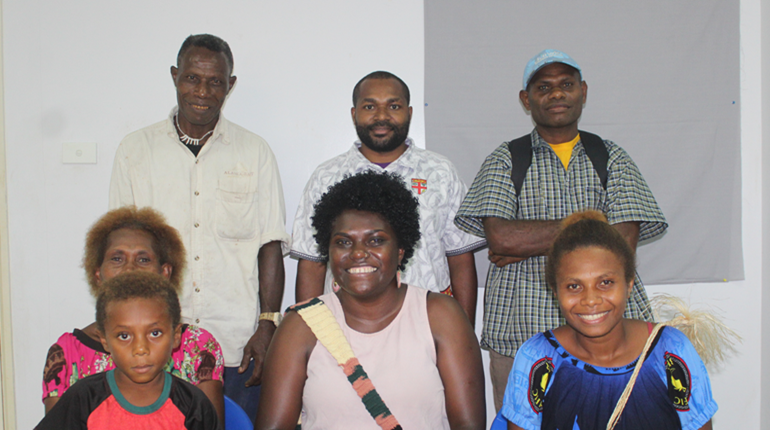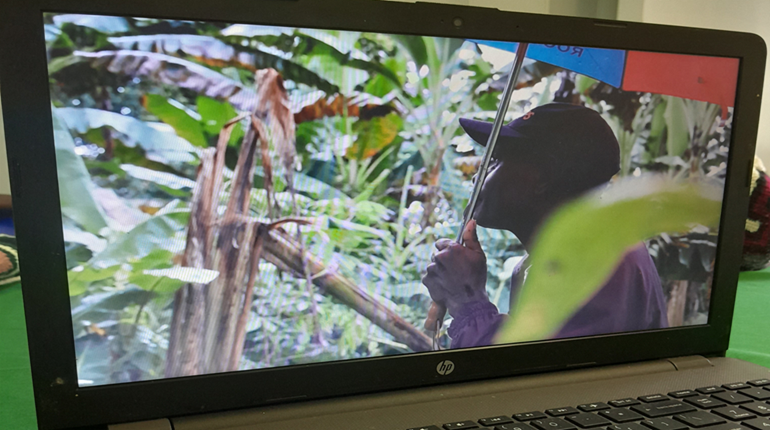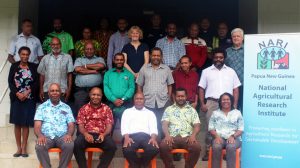In a collaborative effort aimed at empowering farming communities and enhancing agricultural resilience, the National Agricultural Research Institute (NARI) and the University of Goroka’s Centre for Social and Creative Media (CSCM) embarked on a significant initiative in the last week of February. The project involved the screening of farmer videos in East New Britain (ENB) and Morobe provinces, marking a crucial step forward in advancing climate-smart agriculture practices in Papua New Guinea.
Under the umbrella of the ACIAR-supported Climate Smart Agriculture project, NARI and CSCM joined forces with the shared goal of bolstering agricultural resilience and productivity in the face of climate change challenges. The screening of farmer videos represents a pivotal component of this overarching objective, aiming to equip farmers with the knowledge and tools necessary to enhance agricultural production and resilience amidst varying climatic conditions.
The feedback garnered from farmers during the screening process will be instrumental in refining and finalizing the videos before their official launch and distribution to participating communities. This collaborative effort underscores the commitment of all stakeholders involved to ensure that farming communities have access to relevant and practical resources to navigate the impacts of climate change on agriculture effectively.
The screening sessions, held at the Islands Regional Centre in East New Britain and the Momase Regional Centre in Morobe, were made possible through the generous support of ACIAR. These sessions served as platforms for engaging with local farmers and soliciting their invaluable insights and perspectives on the videos’ content and relevance to their agricultural practices.
Farmers in East New Britain expressed gratitude for the project’s efforts, highlighting the newfound understanding they have gained regarding the importance of utilizing weather information and indigenous knowledge to mitigate the adverse effects of climate change on agriculture. During feedback sessions, farmers emphasized their need for information on food processing technology, particularly for crops like cassava, as well as access to quality seed planting materials to bolster preparedness against inclement weather conditions.
Moreover, farmers highlighted challenges they face, such as difficulties in accessing reliable weather information due to signal disruptions caused by strong winds. They underscored the importance of increasing awareness in communities vulnerable to the adverse impacts of climate change, such as rising temperatures, prolonged dry spells, and erratic rainfall patterns, to enable informed decision-making and livelihood support initiatives.
The collaborative efforts of NARI, CSCM, and ACIAR reflect a shared commitment to fostering agricultural resilience and sustainability in Papua New Guinea. By leveraging local knowledge, technological innovations, and community engagement, these initiatives aim to empower farmers to adapt and thrive in the face of evolving climatic challenges, ultimately contributing to the resilience and prosperity of agricultural communities across the nation.





